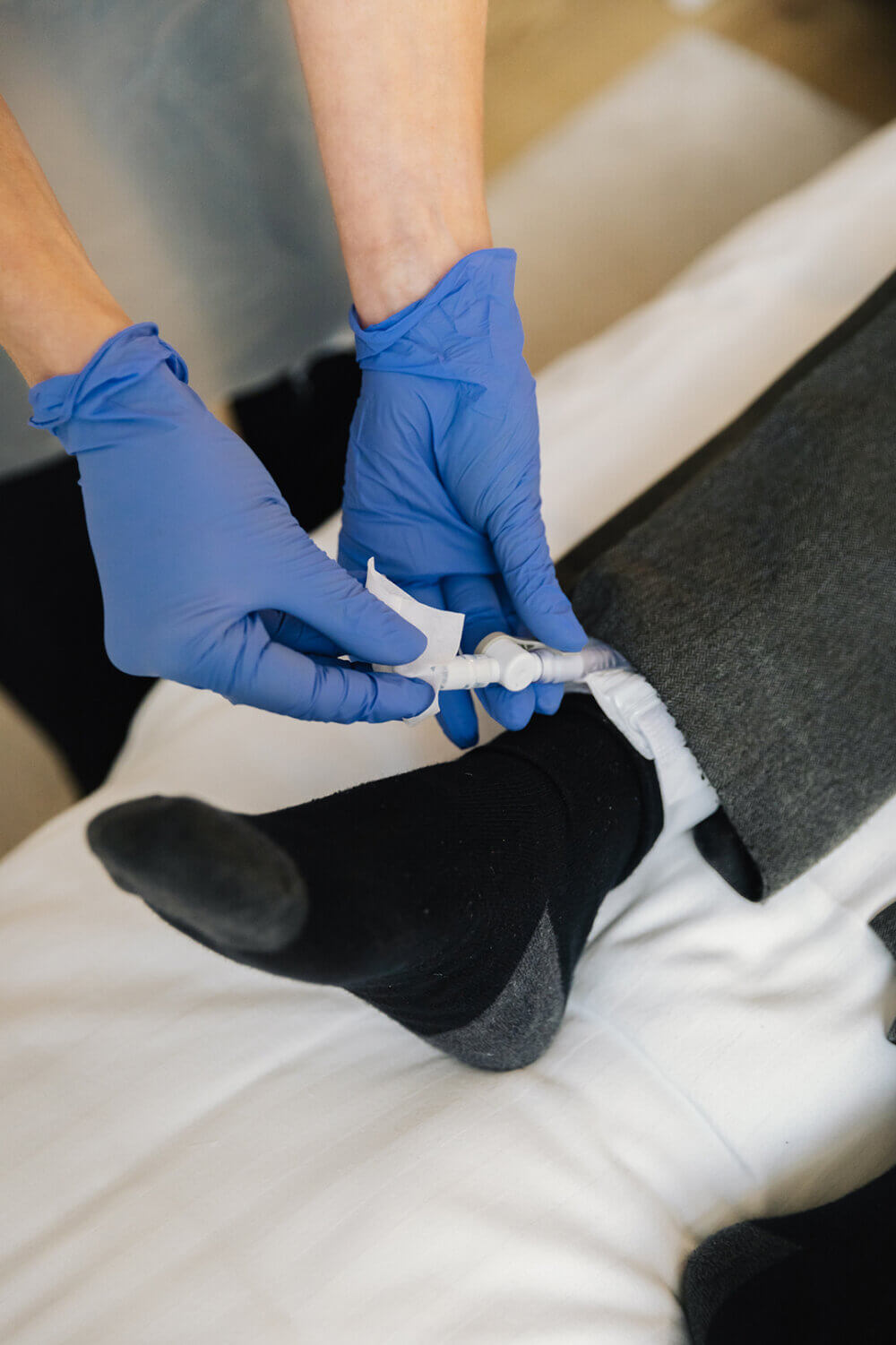
Catheter Care At Home
Our Care Professionals are trained in catheter care, supporting you manage your continence with dignity in the comfort of your own home. We offer flexible, practical support for you and your loved ones, with care tailored to you, helping you stay happy at home.
Managing your catheter at home
Our specialist Care Professionals are expertly trained to deliver catheter care at home, supporting your independence and helping you to live well at home, your way. As catheters can be used on a short-term or long-term basis for a variety of conditions, we can provide flexible support to meet your individual needs to help you manage your catheter care at home. Catheter care can:
- Enhance your independence and support you within your community
- Potentially reduce health complications and hospital admissions
- Assist with catheter care and fluid balance
- Assist with cleaning and maintenance of equipment and consumables
- Support with the ordering of stock and storage of deliveries
- Work with you and your healthcare team when reviewing your care needs.

How can we help?
We've helped thousands of families to stay safe, comfortable and happy at home. Whatever situation you're facing, or whatever the question is, Home Instead is here to help.
Are you in need of a little guidance right away?
03300 583450Are you in need of a little guidance right away?
03300 583450Get in touch today to
see how we can help
What is a catheter?
A catheter, urethral or suprapubic catheter, is a tube that sits in the bladder and drains the urine away from the body into a catheter bag. Catheters can be short term, long term or be intermittent.

What is catheter care?
Catheter care involves ensuring the catheter remains in situ, patentand clean,assistingto reduce the risk of infection. This includes emptying or changing of the catheter bag, sample taking when requested by healthcare professionals and monitoring fluid output.

Benefits of catheter care
Care Professionals are fully trained and deemed competent in your care needs, this helps to reduce the number of infections and the need for hospital admissions. Catheter care is carried out when you need it, not, when it suits others and reduces the risk of complications.

Why choose catheter care at home?
Having health care with Home Instead allows you to maintain your independence, routine, and lifestyle so you can live your best life at home. Your Care Professional will be matched to your interests and hobbies so you can build a trusting relationship with them. Home Instead work with you and your clinical team to ensure the best care is delivered to the highest standard ensuring a fully bespoke and tailored care plan is provided.

Advice & Support

Pre-Bereavement Grief
Discover more

Looking for Respite Care? Look no further than the home
Discover more

Why getting Respite Care is the trick to being a good family caregiver
Discover more

New Dementia Training
Discover more

Making communities dementia friendly
Discover more

Stepping into the shoes of someone with dementia with Training2Care’s Dementia Bus
Discover more
FAQs
Why do I need a catheter?
There are multiple reasons why you may have been given a catheter, whether it was an inability to pass urine or another health related issue. Working alongside your clinical team, our Care Professionals can work out a care plan to suit your needs.
How will a catheter impact my daily life?
Having a urinary or suprapubic catheter in place shouldn’t affect your normal day to day activities too much, allowing you to take part in gentle exercise and household tasks if you are feeling well. It is however recommended not to drive with a urinary catheter in place. If you feel you need assistance with your daily life, our experienced Care Professionals are available.
What are the risks of having a catheter?
There are a few risks in using catheters, primarily they can increase the risk of urinary tract infections (UTIs), bladder spasms and urinary blockages. To minimise these risks catheters are inserted using aseptic technique and the patient will have the catheter removed as soon as possible. Our Care Professionals are trained in dealing with catheters and informing your clinical team of any issues that arise. .






